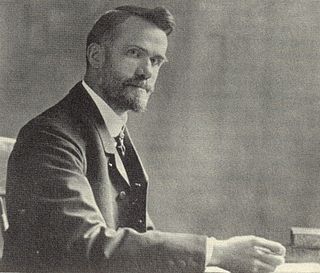A Quote by Walter Rauschenbusch
Whoever uncouples the religious and the social life has not understood Jesus. Whoever sets any bounds for the reconstructive power of the religious life over the social relations and institutions of men, to that extent denies the faith of the Master.
Related Quotes
Through my Faith-Based and Community Initiative, my Administration continues to encourage the essential work of faith-based and community organizations. Governments can and should support effective social services, including those provided by religious people and organizations. When government gives that support, it is important that faith-based institutions not be forced to change their religious character.
Everyone talks about religious liberty, but no one believes it. So let us be blunt about it: we must use the doctrine of religious liberty to gain independence for Christian schools until we train up a generation of people who know that there is no religious neutrality, no neutral law, no neutral education, and no neutral civil government. Then they will get busy in constructing a Bible-based social, political, and religious order which finally denies the religious liberty of the enemies of God.
We take it for granted that Jesus was not interested in political life: his mission was purely religious. Indeed we have witnessed . . . the 'iconization' of the life of Jesus: 'This is a Jesus of hieratic, stereotyped gestures, all representing theological themes. In this way, the life of Jesus is no longer a human life, submerged in history, but a theological life -- an icon.
Human social life, I suggest, is the magma that erupts and builds up, so to speak, at the fault lines where natural human capacities meet and grind against and over natural human limitations…. This meeting of powers and limitations produces a creative, dynamic tension and energy that generates and fuels the making of human social life and social structures…. It is real human persons living through the tensions of natural existential contradictions who construct patterned social meanings, interactions, institutions, and structures.
Under the notion that unregulated market-driven values and relations should shape every domain of human life, the business model of governance has eviscerated any viable notion of social responsibility while furthering the criminalization of social problems and cutbacks in basic social services, especially for the poor, young people and the elderly.
Tibet, why is it occupied? For political reasons maybe they have a reason. I don't know. But religiously, why? The fact that the religious community is being oppressed and persecuted is something that every single person in the world who has any religious faith and religious feeling for - for people who have faith should speak up.





































